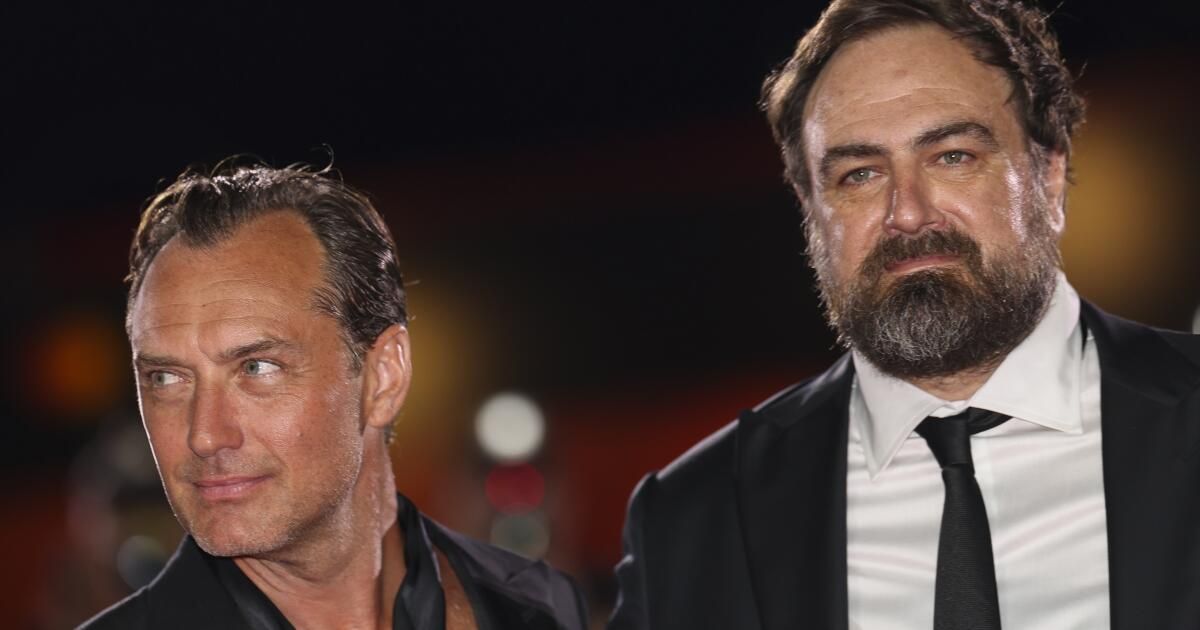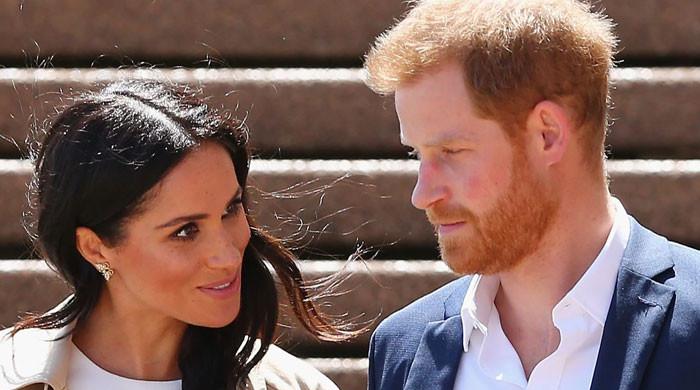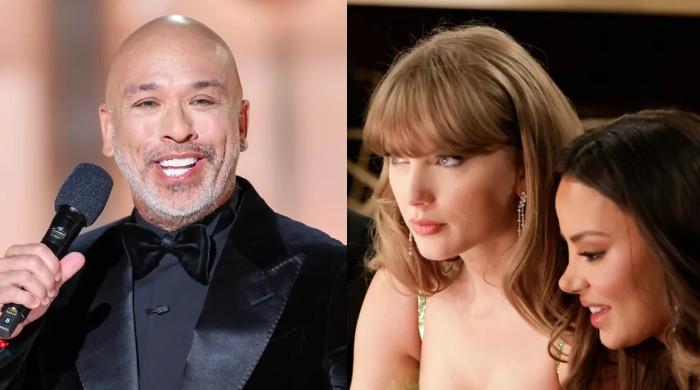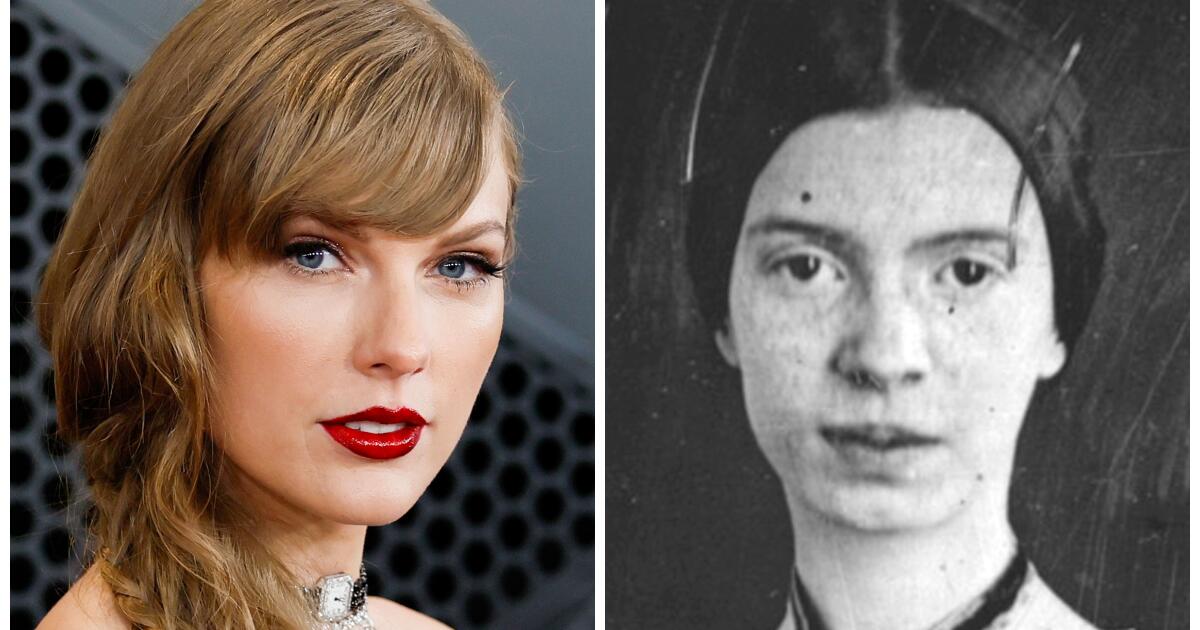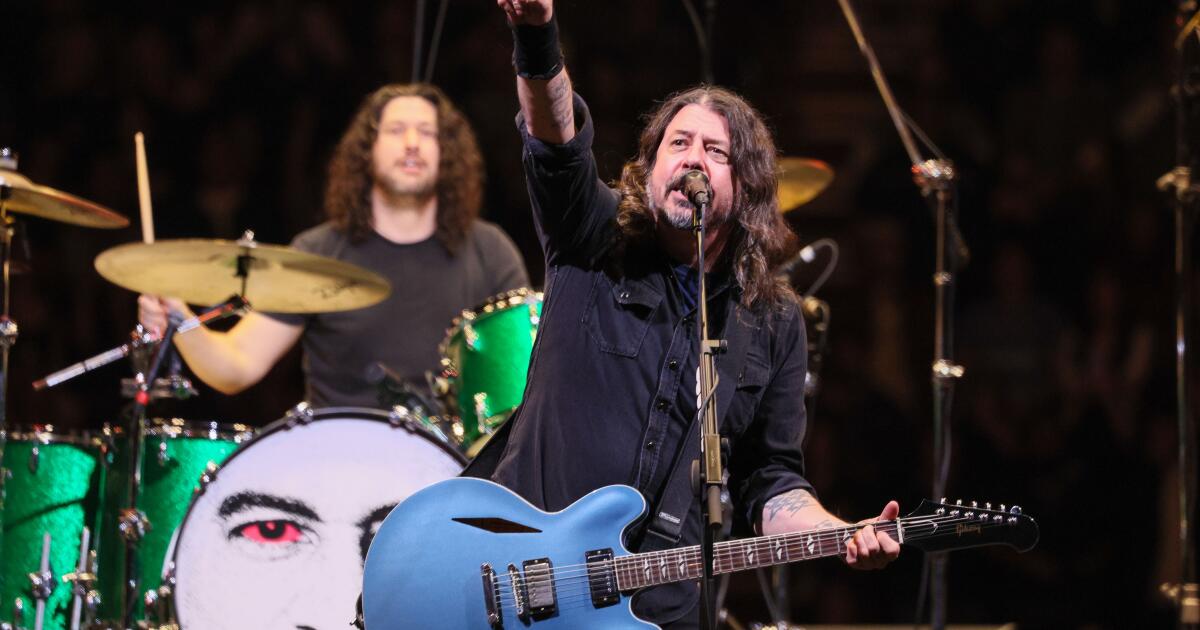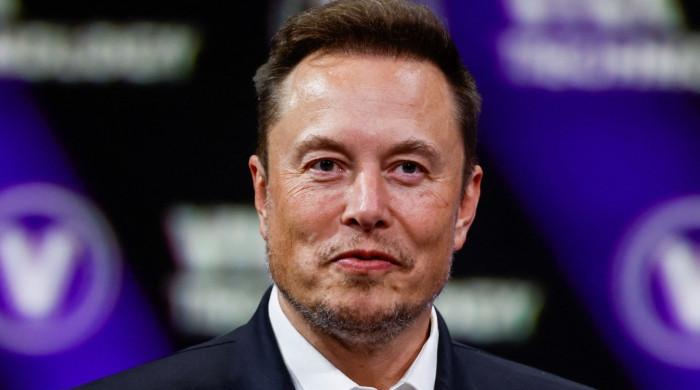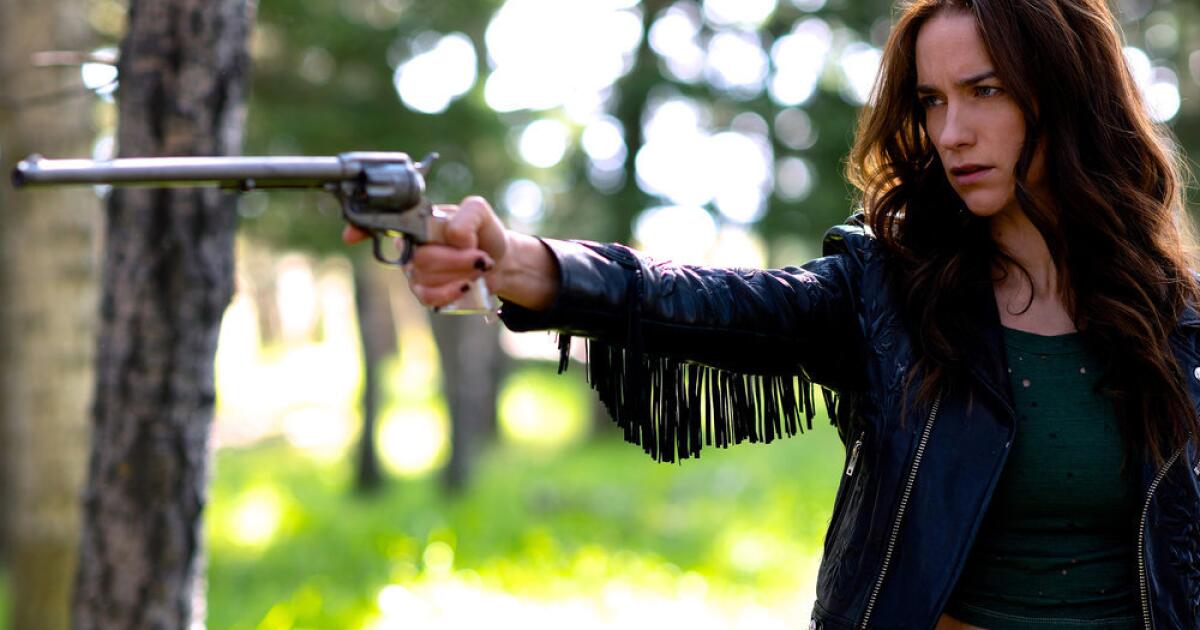“This is a social problem that has been going on for years and years and years. How do we deconstruct a world to prevent it from happening? “Is there a way?” says Jude Law about the plot of “The Order”, his film with director Justin Kurzel based on the true story of a neo-Nazi criminal organization.
(Vianney Le Caer / Vianney Le Caer/invision/ap)
When Jude Law and Justin Kurzel set out to make “The Order,” a period piece about neo-Nazis in the Pacific Northwest, they couldn't have imagined that the events of the early 1980s would be as timely as they are today. Yes, groups like the Proud Boys and the Oath Keepers had been in the news from the 2017 “Unite the Right” rally in Charlottesville, Virginia, to the January 6, 2021 insurrection, but the idea of a white power movement energized with tacit presidential approval had faded, until Donald Trump was re-elected.
“We started developing the script, and then January 6 happened and I saw nooses outside the Capitol building and there were pictures of people holding 'The Turner Diaries,'” says director and producer Kurzel, referring to the 1978 novel that It became a foundational text for white nationalists. “As we were shooting and editing, and as the film was playing at festivals, it's interesting how it becomes more acute in terms of how much it influences the temperature at the time.”
During the campaign, Trump himself promised to fight what he calls “anti-white sentiment” in the United States, and shortly after the election, the FBI said it was investigating threatening text messages sent to African Americans, Latinos and people from the LGBTQ+ community around the world. the country.
Based on a true story, “The Order” stars Law as Terry Husk, an FBI agent sent to Coeur d'Alene, Idaho, in 1983 to investigate a series of bank robberies. He soon discovers that they are linked to a group called The Order, a splinter sect of the Aryan Nations led by Bob Mathews (Nicholas Hoult), a firebrand bent on taking control of the United States government.

Jude Law plays a damaged FBI agent, alongside Jurnee Smollett and Tye Sheridan.
(Michelle Faye/Vertical)
“It's important to say that it didn't start with Bob Mathews,” says Law, who produced the film through his company Riff Raff Entertainment. “It wasn't over with him either. This is a social problem that has been going on for years and years and years. How do we deconstruct a world to prevent it from happening? Is there a way? What does it take to challenge them, to tear them down? You can start with basic answers like education and employment. “It usually starts with the blame game and one side has what the others don’t and who has more money.”
Husk is a composite of the many law enforcement officers involved in the investigation, a fictional character with whom the filmmakers were able to paint a portrait that would contrast dramatically with the real-life Mathews.
“We talked about damaging him and making him subpar,” Law says of Husk's surgical scars, nosebleeds, prescription medications and excessive alcohol consumption. “It's important that Mathews underestimates him. And to do that, I wanted to get him arrested and say, 'Is this guy going to survive the afternoon, much less solve the case?'”
As Mathews, Hoult sports an unseemly Dutch boy haircut that masks a steely determination. With leading-man good looks and sharp comedic timing, Hoult recently turned to his inner demons for inspiration, playing Lex Luthor in James Gunn's upcoming reimagined “Superman.” Like Mathews, he displays a charismatic attraction that draws disaffected young men to the Order.
“We understand the danger in it. But why is he surrounded by children? Kurzel wonders. “Why is he surrounded by people who gravitate towards him? Why do you barbecue? What is that attraction?
It's a question that resonates today, as young men are increasingly attracted to toxic male figures. “It wasn't long ago [when] “It was a very male-dominated society,” says Law. “Women would probably say it still is, and it probably still is, unfairly, but it has left young men feeling vulnerable. And vulnerable minds, hearts and bodies are easy to take advantage of. We are driven by testosterone, which is easier to activate. A climate of rich and poor is established, and there is a natural masculine need to have and provide.”
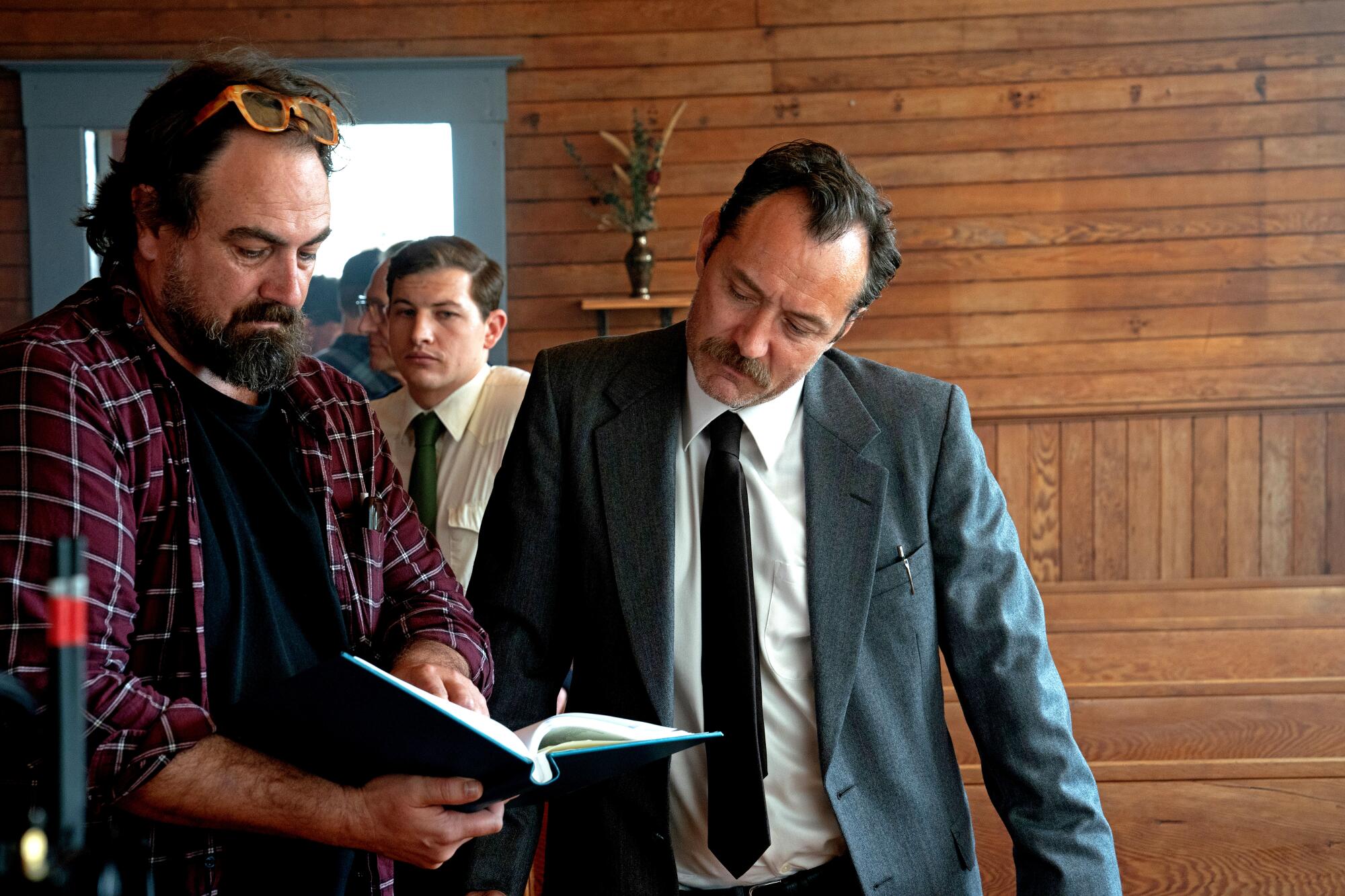
“As we shoot and edit, and as the film plays at festivals, it's interesting how it becomes more acute in terms of how much it influences the temperature at that moment,” producer-director Justin Kurzel says of “The Order.” “
(Chris Grande/Vertical)
Law, a two-time Oscar nominee (“The Talented Mr. Ripley” and “Cold Mountain”), has several projects in the works: His upcoming films include “Eden,” co-starring Vanessa Kirby, Ana de Armas and Sydney Sweeney, and Currently He is in pre-production on “The Wizard of the Kremlin” by Olivier Assayas with Alicia Vikander, as well as “Sherlock Holmes 3”, in which he will reprise his role as Watson. He can be seen now in “Star Wars: Skeleton Crew” on Disney+, and next year in “Black Rabbit,” a Netflix miniseries produced by Riff Raff. It was through that project that he met “The Order” screenwriter Zach Baylin and his wife, Kate Susman, who are its showrunners. (Kurzel directed two episodes of “Black Rabbit.”)
“The last things I had that came out recently were delayed due to the [actors’] strike,” Law says of the sudden flurry of activity. “I've been lucky enough to be asked to do interesting work, and 'Black Rabbit' was something that came from my production company. So I was excited to also be able to direct a piece that I really believed in and wanted to happen.”

